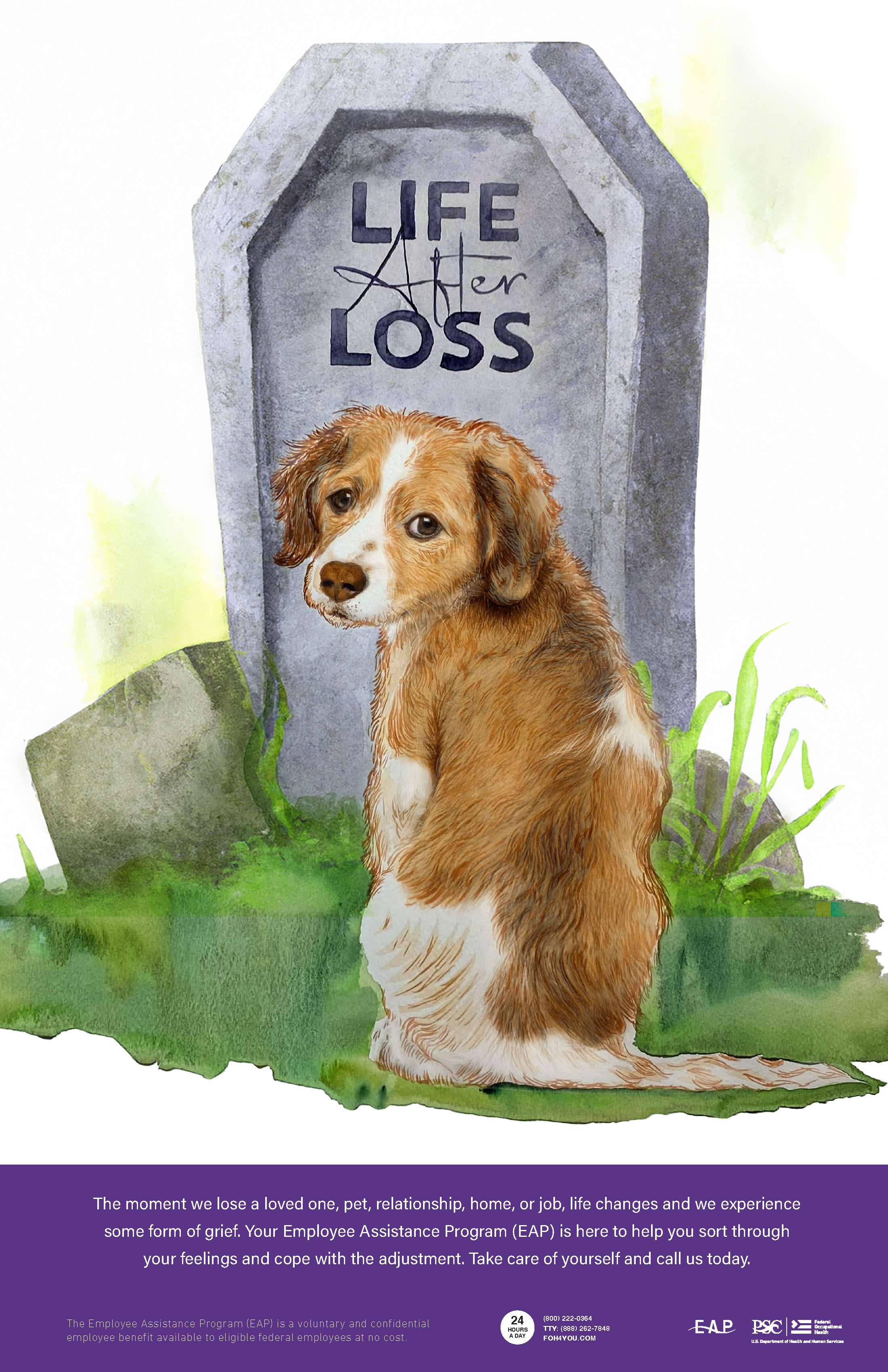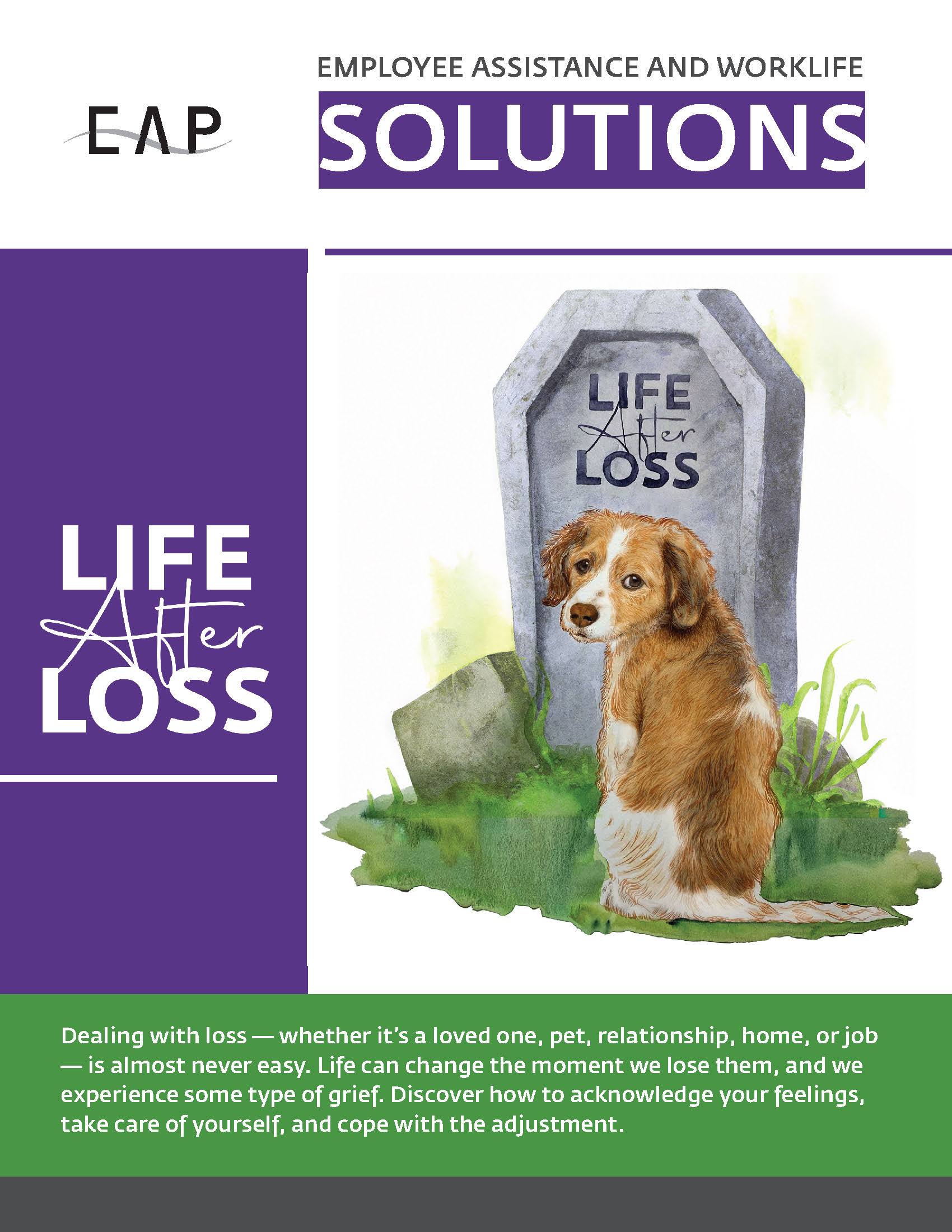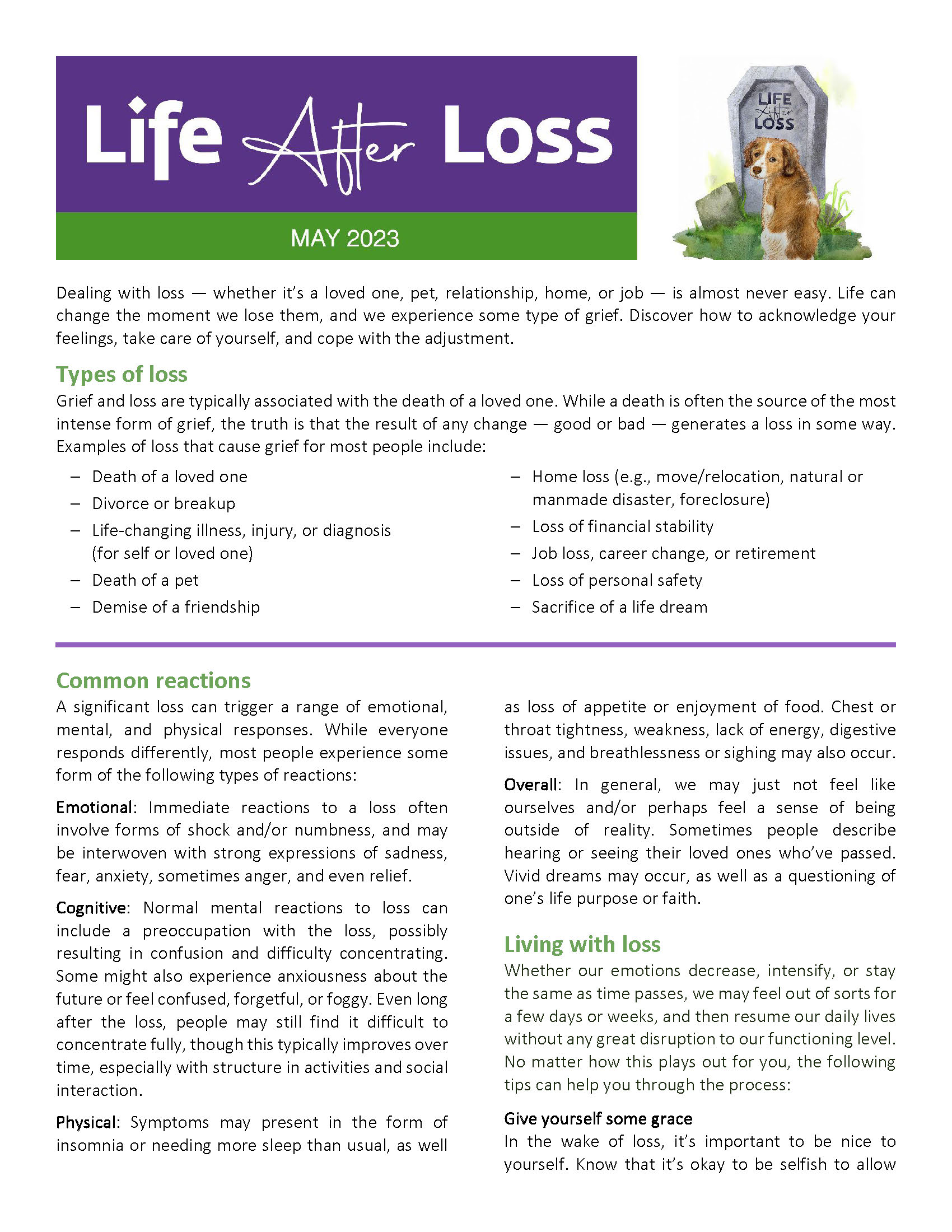
Dealing with loss — whether it’s a loved one, pet, relationship, home, or job — is almost never easy. Life can change the moment we lose them, and we experience some type of grief. Discover how to acknowledge your feelings, take care of yourself, and cope with the adjustment.
Types of Loss
Grief and loss are typically associated with the death of a loved one. While death is often the source of the most intense form of grief, the truth is that the result of any change — good or bad — generates a loss in some way. Examples of loss that cause grief for most people include:
- Death of a loved one
- Divorce or breakup
- Life-changing illness, injury, or diagnosis (for self or loved one)
- Death of a pet
- The demise of a friendship
- Home loss (e.g., move/relocation, natural or manmade disaster, foreclosure)
- Loss of financial stability
- Job loss, career change, or retirement
- Loss of personal safety
- The sacrifice of a life dream
Common reactions
A significant loss can trigger a range of emotional, mental, and physical responses. While everyone responds differently, most people experience some form of the following types of reactions:
Emotional: Immediate reactions to a loss often involve forms of shock and/or numbness and may be interwoven with strong expressions of sadness, fear, anxiety, sometimes anger, and even relief.
Cognitive: Normal mental reactions to loss can include a preoccupation with the loss, possibly resulting in confusion and difficulty concentrating. Some might also experience anxiousness about the future or feel confused, forgetful, or foggy. Even long after the loss, people may still find it difficult to concentrate fully, though this typically improves over time, especially with structure in activities and social interaction.
Physical: Symptoms may present in the form of insomnia or needing more sleep than usual, as well as loss of appetite or enjoyment of food. Chest or throat tightness, weakness, lack of energy, digestive issues, and breathlessness or sighing may also occur.
Overall: In general, we may just not feel like ourselves and/or perhaps feel a sense of being outside of reality. Sometimes people describe hearing or seeing their loved ones who’ve passed. Vivid dreams may occur, as well as a questioning of one’s life purpose or faith.
Living with Loss
Whether our emotions decrease, intensify, or stay the same as time passes, we may feel out of sorts for a few days or weeks and then resume our daily lives without any great disruption to our functioning level. No matter how this plays out for you, the following tips can help you through the process:
Give yourself some grace
In the wake of loss, it’s important to be nice to yourself. Know that it’s okay to be selfish to allow yourself time to recover and give yourself the best chance at reentering normalcy. It’s also important to remember that it’s normal to not feel like yourself after a loss, and that your reactions may be different from someone else’s to the same loss.
Take a resilient approach to coping with loss
Resilience refers to our ability to not get bogged down by life’s difficulties. Some traits that resilient people seem to have in common are the ability to:
- Find comfort through positive memories of what or who has been lost
- Gain meaning or purpose in the loss and even see it as positive
For example: If you lose your job, think of it as an opportunity to find a more fulfilling one, or if a relationship ends, consider that it may pave the way for cultivating new bonds.
- Maintain optimism and believe that things will turn out okay
- Remain flexible with emotions
Look for ways to actively care for yourself
This might involve getting a massage, attending a religious or spiritual meeting, listening to music, going for a walk, reading a book, or even taking a bath. No matter how you choose to engage in self-care:
- Continue to treat yourself with care and kindness
- Be aware that you may bounce back fairly quickly — many people do
- Understand that you may still feel some effects, though eventually, you’ll begin to regain your sense of purpose and strength, and the ability to function in daily life
- Accept that you may continue to have difficulties
Get back to basics and engage in healthy practices
Grief can affect your sleep, diet, and interest in exercise. Try to keep to your usual routine as much as possible where these factors are concerned. Get rest and sleep when you can, and be mindful of eating healthily, especially during stressful times. Continue or begin to exercise if you’re able, or at least move and be active as best you can.
Stay connected and seek support
Reach out to others as needed and accept their support when offered. Research has shown the importance of having a social support system, and if you’re grieving or feeling the effects of a loss, it’s important to activate those connections. Take time for yourself if needed but strike a balance to avoid isolating yourself.
Download the Campaign
|
Poster |
PDF Newsletter |
PT Newsletter |
|
Remember that you can also rely on your Employee Assistance Program (EAP) for help and support, as well. Whether you have a strong support system in place or not, the EAP can provide practical tools, information, and resources to help guide you through grief. Consultants are available 24/7, so call any time, day or night, to speak with someone. 24 HOURS A DAY
The EAP is a voluntary and confidential employee benefit available to eligible federal employees at no cost. |




